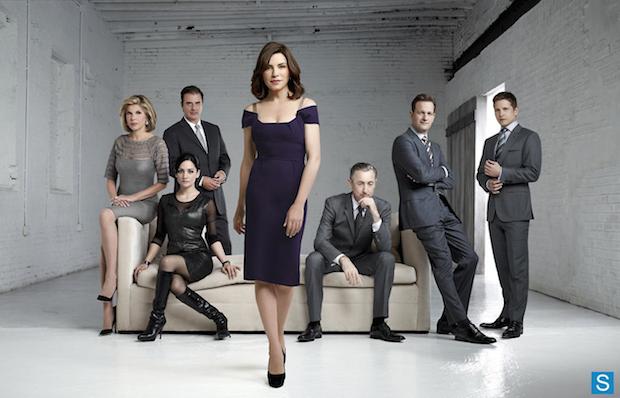American TV drama trumps British TV drama – it’s a well-worn but unfair cliché. It’s not that British drama is necessarily bad – some of it is very good – it’s that American drama is often better.
Compare and contrast Silk (BBC One) and The Good Wife (CBS/More4). Neither show is a blockbuster. Both are law/political office dramas: a staple of TV networks down the years, from the dog days of Judge John Deed all the way back to the glories of Rumpole. Viewers love the format of these wig and gown shows: a question is raised and resolved in every episode, while a wider, character-driven drama rumbles on for years. Each generation adds its own factors to the basic equation: Silk and The Good Wife are concerned primarily with female lawyers. At least, that’s how they began.
In the first series of Silk, Martha Costello (Maxime Peake) and Clive Reader (Rupert Penry-Jones) were competing to be appointed Queen’s Counsel, or ‘silk’ as it’s known in the trade. Peter Moffat’s reliable scripts explored the professional, personal and sexual tension between the players. Martha is working class and proud. Clive is privileged and louche. Both of them are clever and industrious. The supporting cast supported the main players; sub-plots complemented rather than intruded on the main drama. Martha beat Clive into ‘silk’.
The second series was very watchable; the third series, however, lacks direction. The characters have become caricatures and narrative cohesion has been lost. Martha has been overwhelmed by her tenacity; the first episode saw her berate a Court of Appeal tribunal in the lobby of the Royal Courts of Justice for its decision in a recent case, which is incredible. Clive has become a cipher, while the supporting cast has been promoted. We’ve an alcoholic female silk, an insipid and hopeless pupil, a vapid management yuppie and a terminally ill antediluvian clerk.
This ungainly quartet is, I think, supposed to be exploring the pressures that the criminal justice system is under (rather than just the pressure of working in it). Any criminal barrister or court reporter will tell you that the courts reflect the lives of the people who use the justice system most: the very poor, the very needy, the very vulnerable, the very deranged and, occasionally, the very evil. The writers of Silk are yet to dirty their hands in this sorry territory, contenting themselves with more glamorous targets instead. Last week, Martha Costello took on the iniquitous US government, thwarting its attempts to extradite a British Muslim accused of terrorism. The US-UK extradition treaty – and the terror legislation that surrounds it – is a much publicised disgrace; but it is not a quotidian disgrace. For whatever reason, the third series has been safe in dramatic terms. Maybe tonight’s episode will plough tougher furrows.
The Good Wife – showing on Thursdays – is unmistakably American. The production is almost oppressive: the costumes are chic; the women are statuesque; the men are ripped; the extra-marital sex is clean and tidy – fornicating rather than fucking. The characters sit at the apex of Chicago: split between the Governor’s office and elite law firms. The cast is stellar: Julianna Margulies, Christine Baranski, Josh Charles, Archie Panjabi, Matt Czuchry, Alan Cumming and Chris Noth, with Stockard Channing, Michael J. Fox and Matthew Perry dropping in at various points.
Despite these grand appearances, the drama is intimately human. The good wife of the title, played by Julianna Margulies, is a mother with difficult teenage children, the First Lady of Illinois, a talented lawyer who is setting up a new law firm. She is simultaneously: ambitious, strident, defiant, vulnerable and wounded. Her marriage is complicated; there have been affairs, temptations and insecurities. Each of her colleagues and competitors veers between venality and principle, between sensitivity and brutality. The good wife tries to be good.
Beneath this glossy soap opera are moments of deft social commentary. Last week, Margulies’s character was defending an illegal immigrant who was being deported back to Mexico, where he faced near-certain death for ‘snitching’ on a cartel. A human rights defence – as Europeans understand it – was not available to this man, so his lawyers explored every loophole and procedural defence available to ensure his safety. They succeeded at the eleventh hour, which was all well and good but the viewer was left wondering what happens when lawyers don’t succeed in these elaborate manoeuvres. Every episode follows this simple, compelling structure, provoking the viewer into thought even as they are stupefied by the iridescent production values.
The latest series of The Good Wife is the best yet, rivalling any American show. But it has taken 5 seasons and 105 episodes to reach this height. Silk has become tame after 3 series and 18 episodes. Time and confidence are the chief differences between British and American TV dramas.






Comments